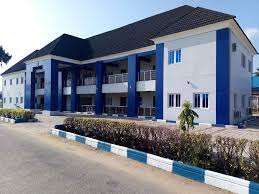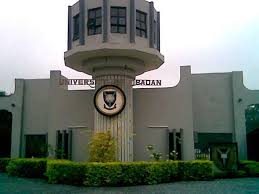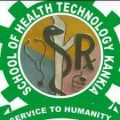During a bachelor’s degree program in community health, students may be expected to take courses that are fundamental to their understanding of community health education and health promotion practices and policies. This can include classes that focus on disease prevention, communication methods and techniques, worksite health promotion, and family health and wellness. Additionally, there will be courses that teach the proper methods for educating people from different socioeconomic and cultural backgrounds, along with classes specifically dedicated to the health and wellness of women and children.
As with most bachelor’s programs, these degrees typically require 120 credit hours for completion and often some form of an internship or project. This may vary depending on where students attend college and the inclusion of any previously completed coursework. In Nigeria, most community health training and certifications are conducted in University teaching Hospitals. Very few schools offer undergraduate degree programs in community health they include:
Madonna University
Madonna University is a private Christian university affiliated with the catholic arm of Christianity in Nigeria. The university was founded in 1999 in Anambra state south east Nigeria. Madonna University as earlier stated is a Christian university providing academic programs at different levels cutting across Engineering, Sciences, Arts, Medicine and Law. The university Is one of the few university offering community health programs which include
- Environmental Health Technicians (Diploma) 3years
- Health Promotion and Education (Diploma) 2 years
- Community Health Extension Workers Programme (Diploma) 3years
- Junior Community Health Extension Workers Programme (Certificate) 2years
- Emergency Medical technician (Diploma) 3years
- Dispensing Opticianry Technician Programme (Diploma) 3 years
- Pharmacy Technician Programme (Diploma) 3years
- Medical Social Work (Diploma) 3years
- Dental Surgery Technician/Dental Health Technician Programme (Diploma) 3years
- Anesthetic Technician Programm (Certificate) 2years
- Health Information Management (Professional Diploma) 3years
Babcock University
Babcock University is the first University in Nigeria, indeed Africa, and perhaps globally to offer the first Bachelor of Science degree in Public Health. At inception, the Department of Nursing and Community Health was created to offer three major programmes: Bachelor of Science in Public Health, Bachelor of Nursing Science, and Bachelor of Medical Laboratory Science. The Bachelor of Laboratory Science was put on hold. Later, the Department became Department of Health Sciences. Today, it is a standalone Department in the School of Public and Allied Health offering one program: Bachelor of Science in Public Health (since 1999). The Public Health Program has FULL Accreditation from the National Universities Commission (NUC).
Community Health Training In Teaching Hospitals and Other Institutions
CHO Training Programme is a professional Programme designed to train Community Health Officers’ to become the most senior of the Community Health Practitioners in Nigeria. Thirty percent of the practitioner’s time is spent in the Community while seventy percent is spent in the clinic.
The Programme tries to guide, supervise, monitor and give good leadership to trainees. It tried to build a cohesive health team and sustain individual and team morale on the practitioners. It strives to make practitioners to work independently when necessary and make good judgment. The practitioners should be able to interact with various government agencies and the local community. This Program is Often domiciled in University teaching Hospitals.
The Junior Community Health Extension Worker is a member of the District Health team working, directly with the Village Health workers/Traditional Birth Attendants. He/she is employed by the formal Health system and she is expected to Spend 80% of his/her working tine in the community and 20% in the clinic. He/she is supervised directly by the community Health Extension workers.
Training for Junior Community health Workers is carried by most school and colleges of health technology in Nigeria . Colleges of Health Technology, and related institutions, award the Ordinary National Diploma (OND) on the successful completion of a two-year programme. The Higher National Diploma (HND) can be taken as a two-year programme following the completion of the Ordinary Higher Diploma and one year of relevant work experience.
Objectives of Training in Community Health
- To introduce the students to concepts and principles of Community Health and its relevance in the health care delivery system of Nigeria.
- To equip students with the knowledge and skills to plan, organize and evaluate appropriate health programmes (promotive, preventive, curative and rehabilitative) in collaboration with other members of the health team in order to reduce morbidity and mortality in the society
- To train public health specialists with core competency to assume leadership roles in public health organizations and efforts.
- To conduct research on public health problems in the state, the country and internationally.
- To develop effective collaborations with government and non-governmental organizations in improving the health of the society
The community health officers training programme lasts for two (2) calendar years and leads to the award of Higher Diploma in Community Health care.
Programme Admission Requirements
Community Health Extension Worker (CHEW) Diploma
Five Credits (5) in WAEC or NECO which must include English Language, Mathematics, Biology, Physics and Chemistry.
Junior Community Health Extension Workers (JCHEW)
JCHEW: Credits in Biology, Mathematics, English Language, and pass in Physics, Chemistry at not more than two sittings (WAEC, GCE or NECO).
Basic Educational Qualification for CHO
West African School Certificate / GCE “O” Level OR Senior Secondary School Certificate (NECO) with five (5) credits which must include English Language, Mathematics, Biology, Chemistry and Physics at not more than two (2) sittings.
Professional qualifications and experience:
In addition to the qualification above, candidates for CHO must possess any of the following professional qualifications and experience:
- Diploma in Community Health (DCH) with not less than two (2) years post qualification experience
- Community Health Extension Worker (CHEW) with five (5) years post qualification experience
- Applicants must be a registered Community Health Practitioner and possess a valid practice license.
Selection for admission is usually based on candidates’ performance at a competitive written test and oral interview is sometimes conducted.






